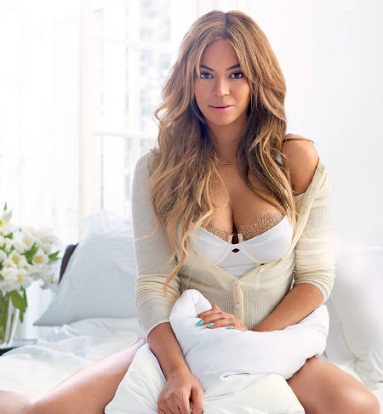What’s Black enough for you ? by Brande Victorian

This is a question that’s been on my mind for a while now, mostly incited by the reactions geared toward Beyonce when she was named PEOPLE’s most beautiful woman earlier this year. The response from a lot of women to her win was essentially that it took her lightening her skin, getting long, silky blonde weave, and perhaps a nose job to be beautiful, followed up with questions of just how black she really is because of some of those features which she was simply born with, like her skin tone. The backlash was ironic to me because not long before when her L’Oreal commercial depicting her as a French, Native American, and African American woman came out, a surprising number of people said they had no problem with her identifying as such because of her Creole roots. But when it came to celebrating a Black woman being named the most beautiful woman in the world, the claps and cheers were nearly non-existent from the people who aren’t diehard, Beehive stans.
Bey is hardly the only woman who gets her black card pulled from time to time. There have been comments about Zoe Saldana and Lala Anthony who were recognized on Maxim’s list of beautiful women. Because of their Latina heritage, plenty questioned why some outlets were recognizing them as black and even spread lies about both women denouncing their African heritage, when the opposite is actually quite true. Lala has always self identified as a Black and Latina woman, as has Zoe, but because they may have lighter eyes, or a thinner nose, or a less coarse grade of hair, they get their Black pride fists slapped down as we remind them, they’re not really black like us.
Beyond their physical features, Zoe has been chastised for dating white men and labeled as someone who’s only black when it’s convenient because of her dating history and perhaps preference, but it’s ironic in a day when every other piece on dating and relationships is encouraging Black women to date outside their race. I get the questions that perhaps she’s trying to date white to assimilate, although that could clearly never happen with her brown skin and thick accent. But when I’d asked the question not that long ago of whether dating white trumps your black card, the response was a resounding “NO!” and why are we even asking this question and why are we still talking about interracial dating, yet every so often comments come up to the contrary suggesting black women who do date outside of their race frequently are accused of self-hatred and not being black enough much like black men who do the same.
It’s totally understandable and justifiable to be sick of seeing light-skinned, long-weaved, Caucasian-featured black women celebrated in the media but the frustration should be taken out on the outlets upholding this standard not the women who can’t help that they embody some of these characteristics naturally (i.e., I’m not talking about the Nicki Minaj and Lil Kim’s of the world). It certainly didn’t ease the “not like us” sting to have Paula Patton be the only other Black woman on PEOPLE’s list but it’s also counterproductive to try to tear her down for having her beauty celebrated. Sometimes the policing of these women’s negroness is not unlike other ways black people segment each other by saying people who are into comics or Harry Potter or something along the fantasy entertainment lines aren’t really black or someone who speaks “proper English” isn’t one of us. The comments are divisive and truly put us on display as a group of people who are never even good enough for each other, forget mainstream media. In the push for more representations of blackness via skin tone, hair texture, facial features, body sizes, and so on and so forth, we don’t have to tear down or try to eliminate women on one end of the spectrum to make room for others. The focus needs to be on inclusion and intra-diversity, not light-skin, “good hair,” interracial dater shaming.
It’s also unfair to expect everyone to hold up an Afro pick and talk about and be about their blackness all day long anymore than we can demand homosexuals to come out of the closet to the public and become a crusader for LGBTQ rights. There are some people who love to talk about their blackness any chance they get and others who prefer to be in the Idris Elba camp and not have to have their race interjected as a constant qualifier to their achievements. Neither is wrong, it’s a personal preference and no one should be guilted into having to speak out more as a black woman or accused of trying to hide their blackness because they don’t. We get enough criticism externally for being too black, we don’t need to turn that aggression inward and start policing other people for not really being black enough in our minds. Especially when the critiques don’t stop when a dark-skinned woman is on display, or a natural-haired girl, or a thinner black woman. The depictions are truly never to our liking which begs the question of whether we’re simply insatiable?
This isn’t a push to say be happy with whatever “they” give you, because there’s obviously a lot of work to be done to balance images of beauty when it comes to black women. But it is a question to make you think about whether you really know what images you want to see and what would satisfy your so-called black quota or if you’re just rebelling against the status quo because that’s what it is. We can’t just complain if we don’t have the solution, and calling out women with features or behaviors we deem to be less black is not it.
Do you think it’s wrong to call out some of these women as not being black enough or are the criticisms justifiable?
Brande Victorian is a blogger and culture writer in New York City. Follow her on Twitter at @be_vic.




